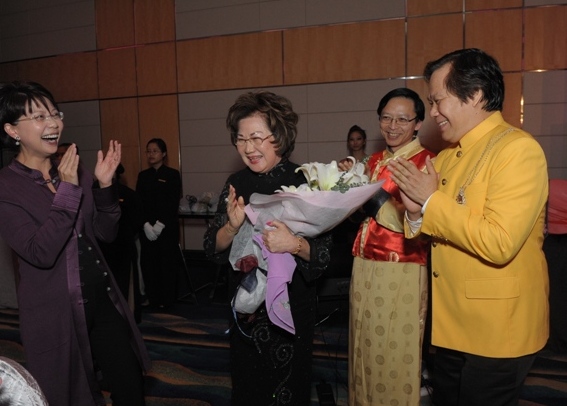National plan for palliative care to come, says Health Minister
published by The Straits Times on November 8, 2011By Janice Tai | Published in The Straits Times on 08 November 2011
MORE will be done to ensure Singaporeans nearing the end of their lives are well cared for, Health Minister Gan Kim Yong said last night.
A national strategy for palliative care is being formulated and it will, among other things, help determine the resources that are needed in this area.
Details will be announced soon, he said at the 42nd anniversary dinner of Assisi Hospice, one of Singapore’s oldest and most established hospices.

Mr Gan noted that with people living longer and the rise in chronic diseases, the medical care that people require at the end of their lives will change significantly.
For example, while in the past, people often died of acute illnesses such as infections or heart attacks, people today increasingly die after a period of progressive disability due to an incurable condition, such as advanced cancer, progressive organ failure or advanced dementia.
Although palliative care historically focused on patients with advanced cancer, there is increasing recognition that patients with non-cancer conditions can also benefit from palliative care, he said.
Addressing about 600 people, including Temasek Holdings’ chief executive Ho Ching, the patron of Assisi Hospice, he said Singapore has made good progress in developing palliative care services.
While they began as home hospice services and inpatient hospices, such services are now available in acute hospitals and piloted in a few nursing homes.
Currently, there are seven inpatient and home hospice providers which serve about 5,000 palliative care patients yearly.
The number of health-care professionals trained in palliative care is also on the rise, with the number of nurses trained in palliative care increasing by about 14 per cent over the past year to 294 this year, from 257 last year.
He noted that the Lien Centre for Palliative Care had been asked by the Ministry of Health to work out the national strategy for palliative care, with input from the palliative-care community.
Former health minister Khaw Boon Wan revealed last year that a code of ethics may be included in the national strategy.
Mr Gan also encouraged Singaporeans to actively make choices on end-of-life care before they are struck by a debilitating illness.
“While death is inevitable, it need not be filled with agony and helplessness,” he said at the dinner at the Pan Pacific Hotel.
Through advance care planning, patients, families and health-care professionals are encouraged to talk more about end-of-life care and treatment decisions before palliative care is required.
This is already taking place in some hospitals and nursing homes today.
Under the Project CARE pilot, seven nursing homes in the central region are working with Tan Tock Seng Hospital to improve their palliative care and advance care planning capabilities.
Early results have been encouraging and the ministry will have more such projects in the coming few years.
The ministry will also continue to work with the palliative care community to raise awareness of end-of-life issues, as many continue to have misconceptions about this subject.
Mr Gan said some hospice care workers had told him that patients and family members who are referred for palliative care sometimes decline the referral as they see it as “futile care”.
“I thought it was a lost opportunity for the patient and family to make the patient’s final journey as meaningful and comfortable as possible, and avoid inflicting unnecessary pain and suffering to the natural process of dying,” he said.

